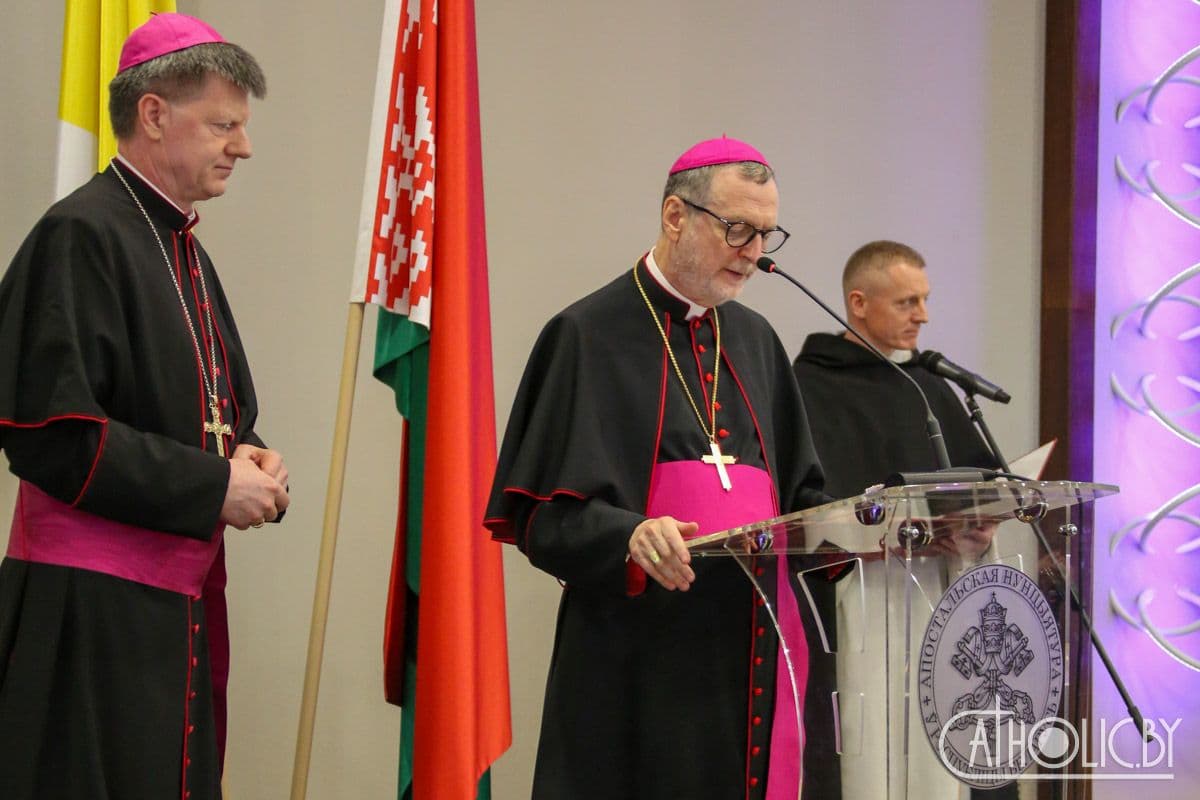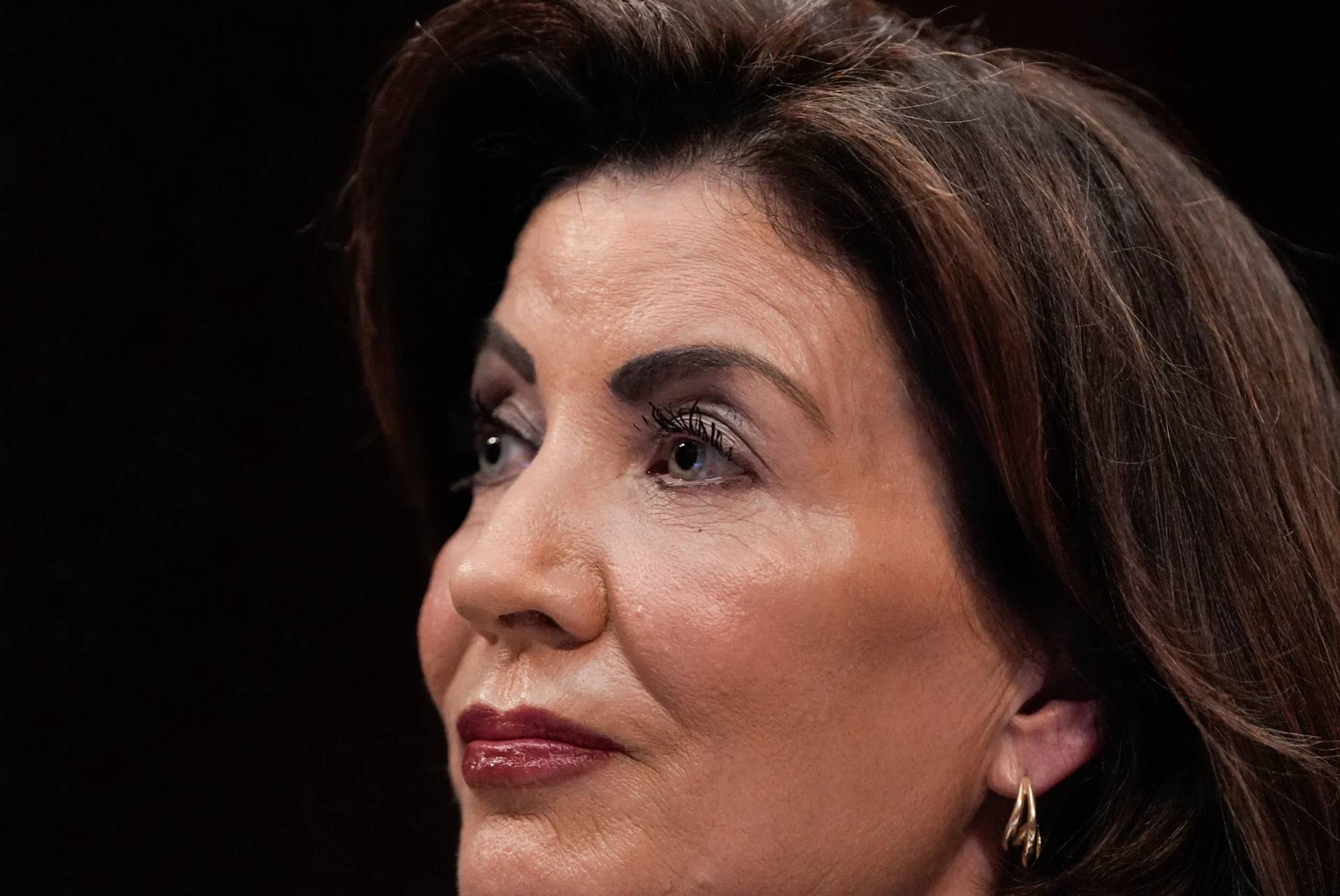ROME – Days after Belarus brokered an end to an aborted insurrection in Russia, and as the pope’s personal peace envoy closed a trip to Moscow, a top Vatican official arrived in Belarus to honor a famed icon and to meet high-level state and ecclesial officials.
Italian Archbishop Paolo Gugerotti, Prefect of the Vatican’s Dicastery for Eastern Churches, arrived in Minsk June 28 as Pope Francis’s special envoy for jubilee celebrations surrounding the 25th anniversary of the coronation of the miraculous icon of the Mother of God of Budslav.
Jubilee celebrations for the icon will be held in the national shrine dedicated to it from June 30-July 1.
Gugerotti previously served as the papal nuncio, or ambassador, to Belarus from 2011-2015.
His arrival comes at a sensitive time for the country, given the ongoing war between neighbors Russia and Ukraine, and as Belarus and the Holy See seek to recover from a recent strain on relations over Belarusian President Alexander Lukashenko’s decision less than three years ago to exile the then-Archbishop of Minsk, Tadeusz Kondrusiewicz.
In August 2020, Kondrusiewicz was barred from reentering Belarus after making a brief visit to Poland due to his criticisms of Lukashenko and his handling of pro-democracy protests in a disputed election earlier that month.
Numerous attempts were made to negotiate his return, including from the Vatican’s Secretary of Relations with States, British Archbishop Paul Gallagher. Kondrusiewicz was eventually allowed to return for Christmas that year, but his resignation was announced soon after, on Jan. 3, 2021, which marked his 75th birthday, the mandatory retirement age for cardinals and bishops.
Bishop Iosif Staneuski, who at the time served as an auxiliary bishop for the Diocese of Grodno, was appointed as Kondrusiewicz’s successor in September 2021.
Gugerotti’s visit to Belarus also comes at a sensitive time in terms of regional geopolitics given the war in Ukraine.
A longtime close ally of Russian President Vladimir Putin, Lukashenko has been supportive of Russia in the wake of its invasion of Ukraine in February of last year, and he also recently negotiated an end to a short-lived insurrection that has left Russia reeling.
Last week, members of the Wagner Group – a mercenary force contracted by Moscow to fight against Ukraine – seized control of a southern military headquarters in Russia and marched on Moscow, stopping only when Lukashenko intervened.
Upon his arrival in Minsk, Gugerotti was greeted by the current papal nuncio to the country, Archbishop Ante Jozić, and his personal secretary Father Yuriy Jasevich.
According to Catholic.by, the official Catholic news platform for Belarus, Gugerotti early Thursday afternoon met with Sergei Aleinik, Minister of Foreign Affairs for Belarus.
In a June 29 statement following the meeting, the Belarusian Ministry of Foreign Affairs said the main topics touched during the conversation were “the current situation in the Eurasian region and the world as a whole.”
The two, according to the statement, also discussed multilateral cooperation between Belarus and the Holy See, as well as their bilateral relations and contacts.
Mention was also made of the need to strengthen “interfaith dialogue, peace and harmony.”
Later that afternoon, Gugerotti met with the Catholic bishops of Belarus at the Vatican nunciature. All active bishops, including the apostolic administrator for the Byzantine Rite in Belarus, were present. Bishop Aleh Butkevich of Vitebsk serves as president of the Belarusian Bishops’ Conference.
According to Catholic.by, Gugerotti assured the bishops of the pope’s closeness, saying the pope is aware of the current difficulties the local church faces, and is praying that they will be overcome “as soon as possible.”
Thursday evening, which marked the Catholic liturgical feast of Saints Peter and Paul, Gugerotti participated in a special reception honoring the tenth anniversary of Pope Francis’s pontificate, following his election in March 2013.
All of the country’s bishops participated alongside local clergy and religious, as well as diplomatic representatives and members of other faith communities. Among the attendees was the Commissioner for Religions and Nationalities Alexander Rumak, and Deputy Minister of Foreign Affairs Yuriy Ambrazevich.
Jozić opened the evening highlighting the many changes Pope Francis has made in his 10 years as pope, saying that in ascending to the Throne of Peter, Francis has “opened the Catholic Church to the whole world and to each individual in a new way.”
He stressed the emphasis the pope has placed on the family and on migrants, as well as dialogue and peace amid conflict, saying, “There can be no peace in today’s world until there is forgiveness.”
Gugerotti in his own remarks extended pope’s greeting, saying, “his love and respect for the Belarusian people is well known.”
“It is also known that the tragedy of the war, which is tearing this part of the world apart and which he is not going to put up with, causes great concern and anxiety for the pope,” he said, saying Francis has “a strong faith that directs consciences and calls them to God’s judgment.”
No one has a simple solution for peace, he said, noting that the Russia-Ukraine war has already caused countless deaths and is a threat to the entire world.
“In this regard, the pope appeals to Belarus, so that the generosity of its people, their deep honesty and hard work, as well as the special role it plays as a bridge between the East and the West, inspires great efforts to be a fighter for peace on the path of dialogue, justice and reconciliation within the country and in relations with neighboring nations,” he said.
Gugerotti also said Francis prays constantly for “peaceful coexistence in mutual attention and respect,” and is also committed to ensuring that the country’s natural resources are being used for the “full development of human progress, spiritual life and social respect.”
Pope Francis, he said, hopes Belarus will be able to “broker peace and help avoid further dramatic events in the region.”
Gugerotti also conveyed the pope’s appeal for the international community “to be attentive to the peculiarities of this heroic people who strive for goodness and peace.”
“This will be achieved not only on the basis of the superficial considerations of geopolitics, based on petty calculations of one’s private interests, but also thanks to a broader vision of real general growth, overcoming stereotypes and relying on the universal good, which alone can save humanity from the catastrophe to which we are headed,” he said.
He cautioned that humanity, without realizing it, is “coming dangerously close, gesture by gesture, action by action, to cheap rhetoric that hides the mental laziness that abandons the great gains of the past in favor of selfish calculations that humanity can no longer succumb to.”
Gugerotti urged Belarusians, and humanity in general, to choose a different path, and assured of the pope’s “unceasing prayer and tireless efforts” for peace.
On Friday, he kicked off festivities by entering the shrine of the Mother of God of Budslav on foot, as pilgrims traditionally do, and began his homily in Russian before transitioning to Italian.
He spoke of life as a pilgrimage to heaven, where faithful will be greeted by the Mother of God, and asked that Belarusians pray for the pope, who he said, “is no longer young, but who feels very young, and sometimes we have to restrain him, because otherwise he is too mobile. He never wants to rest.”
Gugerotti is the latest Vatican official to travel to Belarus for special national faith celebrations.
In 2013, then-prefect of the Dicastery for Interreligious Dialogue, Cardinal Jean-Louis Taran, took place in festivities commemorating the 400th anniversary of the appearance of the Mother of God icon, believed to have miraculous properties, in Budslav.
Three years later, in 2016, Cardinal Christoph Schonborn of Vienna traveled to Minsk for the 25th anniversary of the founding of the Archdiocese of Minsk–Mohilev.
Follow Elise Ann Allen on Twitter: @eliseannallen














